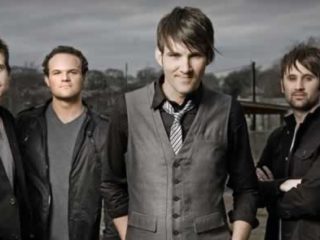A conversation with Julie Fidler, author of Adventures in Holy Matrimony.
Julie, how difficult was it for you to share the personal stories in the book? Specifically, I’m wondering how your husband felt about you revealing your personal marriage details.
It wasn’t that hard for me; it was more difficult reliving some of those events as I wrote them. I’m sure my husband had some reservations (laughs), but he saw this as an opportunity to reach out to others, and let them know they’re not alone in these issues.
What are some of the warning signs you would communicate to young couples, especially people who might be rushing in to marriage?
You need to look at your environment and the people around you. If you have a group of friends like I did, trying to slow you down, that’s probably a sign you’re moving too fast. If you have trouble with money, get some financial counseling. A red flag is couples that move ahead of God’s plan — living together, skipping marriage preparation, making God a lower priority — that’s a sign to me that things aren’t right.
Julie, you admitted in the book that maybe you should have waited to get married. If you had it to do over again, what things might you do differently?
I might have dated my husband a while longer; I was barely 21 when we got married. I thought I was ready for that commitment, but I felt a little caged-in, seeing my college friends doing college things. I might have extended the engagement a little longer.
Had it been possible, I would have moved out on my own first, since I moved from my parent’s house to me husband’s house. That experience might have been a reality check on what the real world is like. When we got married, that world was all new to me. For example, when we married I had no debt and minimal bills. So when big financial things came up I had no idea how to handle them; and usually couldn’t.
There are a lot of mature twenty-one-year-olds, but I wasn’t one of them.
What about the baggage that couples can bring into a marriage?
Every couple brings that to a marriage. In a situation like ours, with all this junk in my past — alcoholic family, child abuse that I had never dealt with — these big unresolved issues are a problem.
It’s a lot harder to deal with these kinds of issues after you’re married. The things you can’t resolve before the marriage will slowly chip away at your relationship — you’re exposing another person to your baggage.
Are you a proponent of counseling?
I wasn’t always; I was skeptical of Christian counseling for a long time. When things were bad between Scott and I, a friend pushed counseling and encouraged me to get help. I’m glad she did. The issues were dealt with through a spiritual foundation that tied-in scripture and provided bible-based tools to help work through the issues.
If you’re in a Christian marriage, the most important factor is God. There will be times when the only thing that keeps things together is God — so if that’s not your foundation in counseling, I think you’ll run into problems.
And I need to stress: A support system is vital to your marriage. If you don’t have one, it’s time to find supportive, honest friends you can confide in. No matter what it takes, you need this. These need to be people who will hold you accountable, who believe in you and your marriage, and will walk with you.
What would you say to someone whose spouse won’t go to counseling?
My number one advice is don’t nag, that’s about the worst thing you can do. Instead, pray about it. And remember, you can get help for yourself; you don’t have to go as a couple — take care of yourself first. If you begin doing the things you are supposed to be doing, it will serve as an example and things will fall into place.
Newly married expectations can be eye opening, can’t they?
A lot of couples go into marriage thinking, my significant other has these weird things about them, but I’m sure once we get married they’ll go away or I’ll be able to change them… And disappointment comes in because that doesn’t happen.. We get married too thinking we’ll be romantic all the time. We expect a Beaver Cleaver situation where you come home to dinner on the table and everything is great. But once reality hits — usually the day after the honeymoon — you realize that isn’t the case.
If you suddenly realize you don’t share the common interests you thought you did, then it’s time to start developing common interests. My husband loves his PlayStation and I love to write. We had to be intentional about finding things that interest us. You need to explore and you need to be flexible. Marriage is all about serving each other; sometimes that means stepping out of your comfort zone and through trial and error, finding things you like to do together.
How is marriage these days?
It’s really good. We have our problems — there are still things in my past we need to deal with; we still have our quirks; I still have trust issues; he still has communication issues. We’re not perfect, but we are so better off than we were years ago or even six months ago.
You know, in that perfect wedding setting it’s so easy to say your vows; and when it gets hard, it’s easy to overlook those promises. Scott and I had to make that commitment all over again and we work hard daily to keep it fresh and healthy. We have a no run policy, and I think that’s what keeps us together.
Copyright © 2006 Marriagetrac.


 Jim is the founder, with wife,
Jim is the founder, with wife, 







